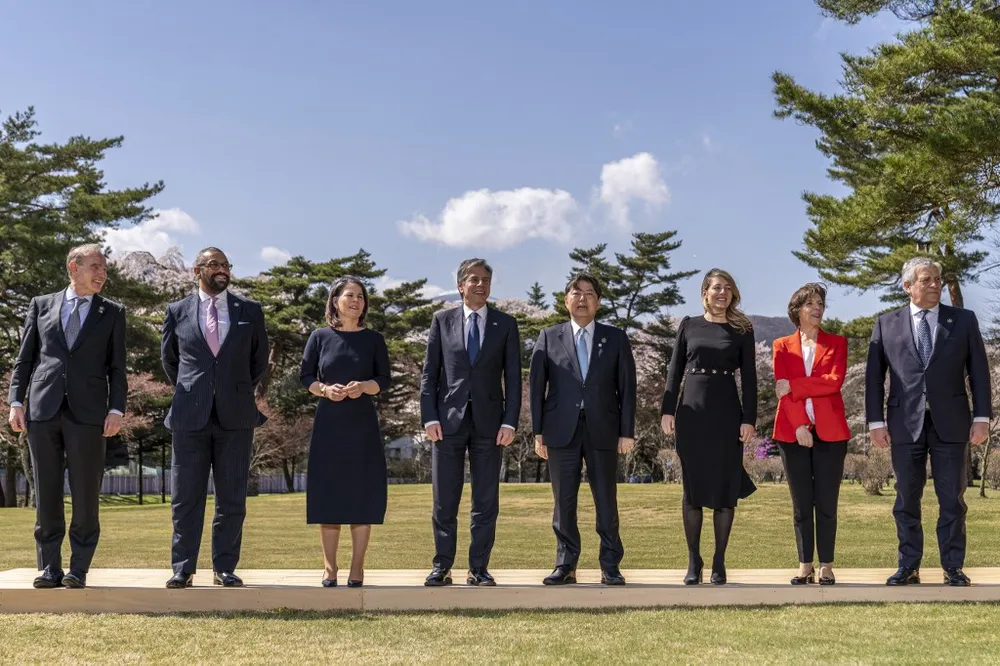Europe must ‘recalibrate’ its relationship with China, EU foreign policy chief Josep Borrell said last week
The leaders of the G7 meet this week in Hiroshima (western Japan) to toughen their tone against Russia 15 months after its invasion of Ukraine and adopt a common line vis-à-vis the Chinese superpower.
The three-day summit, starting Friday, of major industrialized democracies will cover everything from energy to artificial intelligence, but the focus will be on loopholes allowing Moscow to mitigate the impact of sanctions of the G7 on its economy.
Heads of state and government should be cautious of Beijing, displaying unity on Taiwan on the one hand and wanting to make supply chains less dependent on China, while striving to avoid stirring up tensions.
G7 Foreign Ministers
The G7 foreign ministers’ meeting in April focused on Beijing with a warning against its “militarization activities” in the South China Sea. G7 foreign ministers then also insisted that there was “no change” in their stance on Taiwan after French President Emmanuel Macron, returning from a trip to China, said Europe should avoid being caught up in “crises that do not are not (his)”.
The Hiroshima summit is expected to approve the withdrawal of crucial supply chains from Chinese influence. Washington has already taken a tough line on the matter, blocking Beijing’s access to the most advanced semiconductors and the equipment needed to manufacture them, and convinced Tokyo and The Hague to do the same.
Europe must “recalibrate” its relations with China, the head of European diplomacy Josep Borrell said last week. “We are looking for a multidimensional approach to our economic relations with China,” European Commission President Ursula von der Leyen also said on Monday. But “this approach is characterized by risk reduction and not by decoupling”, she assured.
She also cited specific examples of Chinese attempts at economic coercion targeting Lithuania, Japan and Australia. “We are most vulnerable to coercion where addictions build up. That’s why we are taking action,” she added, saying critical raw materials were an area of concern. stock.
An unlisted member of the G7 as a supranational organization, the European Union has already angered Beijing recently by proposing to restrict its exports of sensitive technologies to eight Chinese companies suspected of then re-shipping these products to Russia.
The Hiroshima summit should recommend similar measures to close the loopholes in the sanctions that the G7 countries (United States, Japan, Germany, France, United Kingdom, Italy, Canada) have imposed on Russia. Ukrainian President Volodymyr Zelensky, who has just toured Europe, will address the summit via video conference.
This article is originally published on i24news.tv









